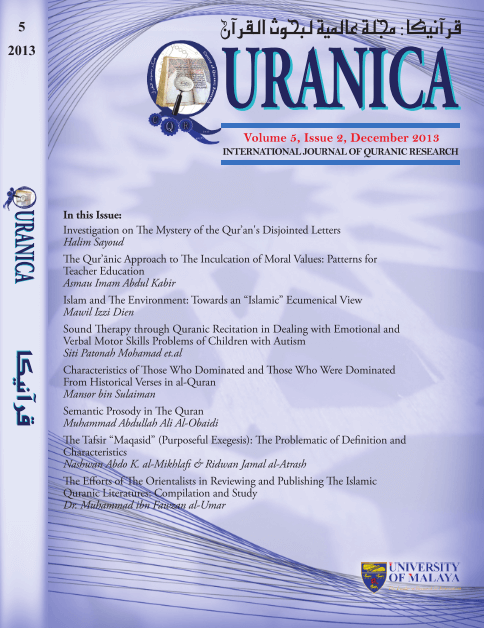Sound Therapy through Quranic Recitation in Dealing with Emotional and Verbal Motor Skills Problems of Children with Autism
Main Article Content
Abstract
Auditory system or neural hearing system is one of the main sensory systems, which has been emphasized several times in the Quran as compared to other systems. Sound therapy, such as music therapy, has assisted stroke patients in regaining part of their affected motor skills/ movements. In a survey study conducted it was reported that recitation and/or listening to the Quran, which concept is similar with music therapy, could reduce the level of stress and increase the level of calmness. Previous study also demonstrated that recitation of Quran could increase the alpha EEG waves, associated with relaxation for normal individuals even though (s)he is unable to read or understand the Quran. It means that the Quran is not only beneficial as the guideline and the main source of Islamic Syariah but its Miracles can also be experienced by listening to the recitations. Sound therapy for Muslims, especially involving reading/ listening of Quran, has been seen as a medium that can help children with autism in stabilizing their emotions and improving their verbal skills. This article is to relate sound therapy, through recitation of Quran, and its importance for individuals with autism. Literature review has been conducted to integrate information from different disciplines, including the traditional Islamic sources (Quran and Hadis) and writings of Islamic scholars.
Downloads
Article Details
Disclaimer
QURANICA makes every effort to ensure the accuracy of all its contents. However, opinions, discussions, views and recommendations are expressed in this journal do not necessarily reflect the official policy of QURANICA or views of its editors or publishers. Therefore, QURANICA and its publishers will not be liable for any controversy may be arisen. The journal reserves the right, at its sole discretion, to change its terms and conditions of publications.
Copyright
It is a condition of publication that manuscript submitted to the journal have not been published, accepted for publication, nor simultaneously submitted for publication elsewhere. By submitting a manuscript, the author(s) agrees that copyright for the article is transferred to the publisher, if and when the manuscript is accepted for publication.
